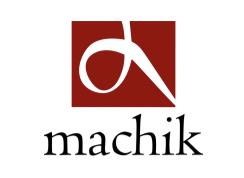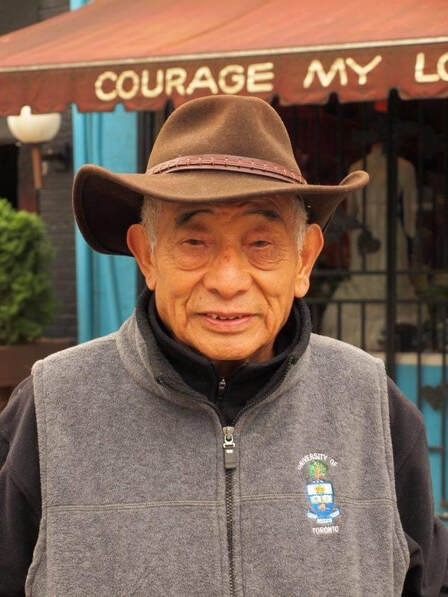Pencho Rabgey, MSC, Machik Ambassador
Phuntsok “Pencho” Rabgey is a visionary and a driving force behind the creation of the Chungba Schools which in turn inspired the launch of Machik. He was born in Chungba, Tibet, in the 1930s and was the first-born among seven siblings living on their family’s barley based farm. He became a monk at his village monastery at an early age and soon began a life-long passion for Tibetan language and Buddhist study. As a teen, he transferred to the much larger Litang Monastery with thousands of monks in the county seat where he continued his studies. After a few years, it was time to move once again, this time much further away from Chungba, all the way to Lhasa where a young Pencho in his early twenties began his studies at Sera Monastery among many thousands of students and teachers.
In 1959, Pencho, along with thousands of other Tibetans, became a refugee in India where he was located to Buxa, a settlement for many monks. He spent years translating in hospitals (Tibetan, Hindi, Bengali), advocating for better conditions for monks, and so on. He later left the clergy and moved to Manali where he met an older fellow Tibetan from the Chungba region. His new friend Chamba (meaning ‘love’) introduced Pencho to his bright and energetic daughter Tsering Dolkar who later became his partner in life. While helping to manage a home for Tibetan monks and running a tiny business selling bread, Pencho and Tsering became parents to two daughters born in the refugee settlements. They learned of the possibility of moving to Canada from Fredi Bedi, the first British person to hold a major post in the new Indian government.
In the summer of 1971, they joined about 200 other Tibetans on their first-ever flights which took them to Canada. Pencho and Tsering decided to move to Lindsay ON where they both found work in local factories. In 1985 Pencho returned to Tibet for the first time in 26 years. He was finally reunited with his mother, siblings and other family. Pencho and Tsering saved resources again and in 1987 they took their children to Tibet, to Lhasa and Chungba. This trip fundamentally changed their lives and the lives of their children.
In the late 1990s, Pencho answered a call to build a school for the children of his homeland. The decision to answer that call was an act of faith in the promise of human potential. Pencho and Tsering decided to cash in Pencho’s retirement savings to seed the project and the effort began with little more than hope on a shoestring budget. At the time, they had little idea of the journey that lay before them. Thus began the work of Machik, with a Tibetan language based primary school in the heart of Kham. From the very first year, the Chungba school became the top model rural school in the county. Six years later, it was the model rural primary school in all of Ganzi Prefecture, a region of nearly a million Tibetans. With the heartfelt engagement and support of many friends from Canada, the USA, Tibet and beyond, Machik opened the Chungba Middle School, also a Tibetan medium school. Machik continued to follow on their promise of K to college education by supporting the students through high school and, by 2014, into college. The first cohort of students to enter the Chungba Primary School in 2002, later graduated from universities in the summer of 2018. Among them is a surgeon, a lawyer with a LLM, dozens of teachers, a graphic designer, aspiring scholars, and so on. Pencho and Tsering have been there each step of the way.
The Tibetan couple still lives in the small Canadian town of Lindsay, Ontario, in the same house since 1975. But their hearts are in the remote mountains of Chungba, where now over 850 rural Tibetan children of farmers and pastoralists receive outstanding education in the Chungba Primary and Middle Schools. In their effort to meet the special needs of the some of the most disadvantaged students and their families, Tsering and Pencho Rabgey have inspired people from Canada to the US to Tibet to the PRC and beyond. Their demonstrated decades of commitment and steadfast dedication to a vision of Tibetan language based education has changed not only the students of Chungba but also their families, the community and the many educators who have studied and implemented Machik’s Chungba model.
Pencho and Tsering continue to inspire the Machik community to commit to the ideals of service and engagement as we work together for a stronger future for Tibet.
In 1959, Pencho, along with thousands of other Tibetans, became a refugee in India where he was located to Buxa, a settlement for many monks. He spent years translating in hospitals (Tibetan, Hindi, Bengali), advocating for better conditions for monks, and so on. He later left the clergy and moved to Manali where he met an older fellow Tibetan from the Chungba region. His new friend Chamba (meaning ‘love’) introduced Pencho to his bright and energetic daughter Tsering Dolkar who later became his partner in life. While helping to manage a home for Tibetan monks and running a tiny business selling bread, Pencho and Tsering became parents to two daughters born in the refugee settlements. They learned of the possibility of moving to Canada from Fredi Bedi, the first British person to hold a major post in the new Indian government.
In the summer of 1971, they joined about 200 other Tibetans on their first-ever flights which took them to Canada. Pencho and Tsering decided to move to Lindsay ON where they both found work in local factories. In 1985 Pencho returned to Tibet for the first time in 26 years. He was finally reunited with his mother, siblings and other family. Pencho and Tsering saved resources again and in 1987 they took their children to Tibet, to Lhasa and Chungba. This trip fundamentally changed their lives and the lives of their children.
In the late 1990s, Pencho answered a call to build a school for the children of his homeland. The decision to answer that call was an act of faith in the promise of human potential. Pencho and Tsering decided to cash in Pencho’s retirement savings to seed the project and the effort began with little more than hope on a shoestring budget. At the time, they had little idea of the journey that lay before them. Thus began the work of Machik, with a Tibetan language based primary school in the heart of Kham. From the very first year, the Chungba school became the top model rural school in the county. Six years later, it was the model rural primary school in all of Ganzi Prefecture, a region of nearly a million Tibetans. With the heartfelt engagement and support of many friends from Canada, the USA, Tibet and beyond, Machik opened the Chungba Middle School, also a Tibetan medium school. Machik continued to follow on their promise of K to college education by supporting the students through high school and, by 2014, into college. The first cohort of students to enter the Chungba Primary School in 2002, later graduated from universities in the summer of 2018. Among them is a surgeon, a lawyer with a LLM, dozens of teachers, a graphic designer, aspiring scholars, and so on. Pencho and Tsering have been there each step of the way.
The Tibetan couple still lives in the small Canadian town of Lindsay, Ontario, in the same house since 1975. But their hearts are in the remote mountains of Chungba, where now over 850 rural Tibetan children of farmers and pastoralists receive outstanding education in the Chungba Primary and Middle Schools. In their effort to meet the special needs of the some of the most disadvantaged students and their families, Tsering and Pencho Rabgey have inspired people from Canada to the US to Tibet to the PRC and beyond. Their demonstrated decades of commitment and steadfast dedication to a vision of Tibetan language based education has changed not only the students of Chungba but also their families, the community and the many educators who have studied and implemented Machik’s Chungba model.
Pencho and Tsering continue to inspire the Machik community to commit to the ideals of service and engagement as we work together for a stronger future for Tibet.

